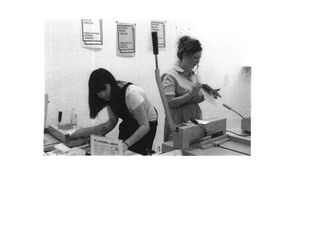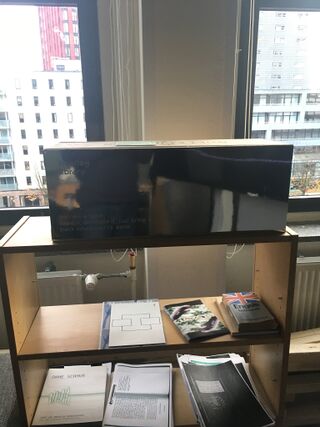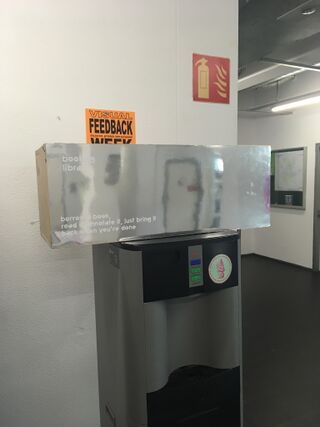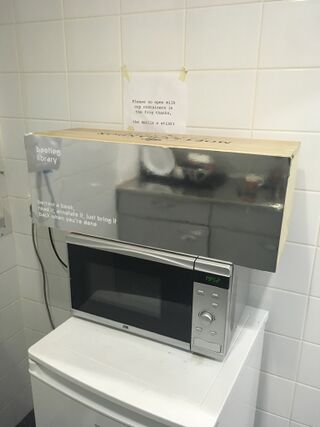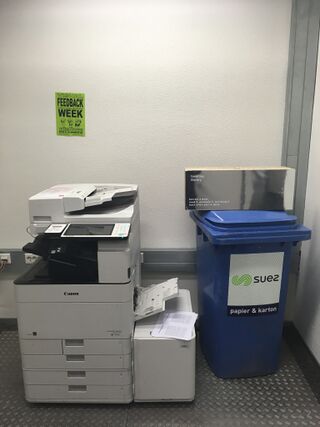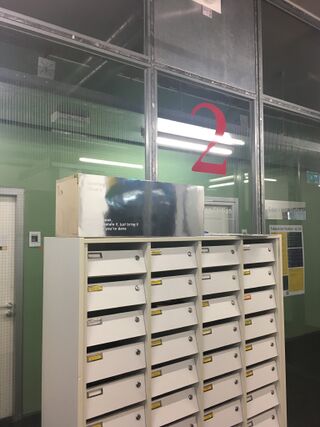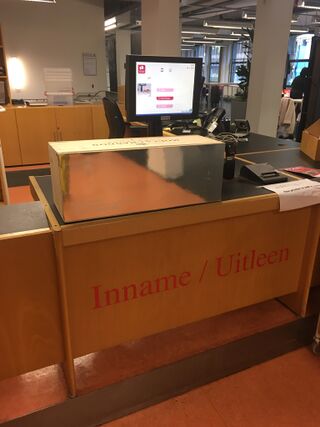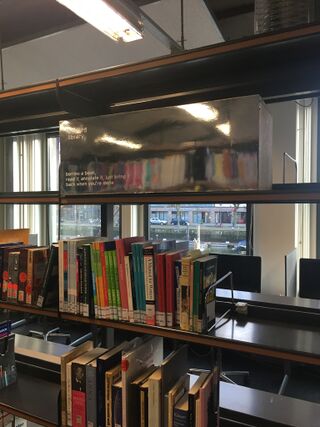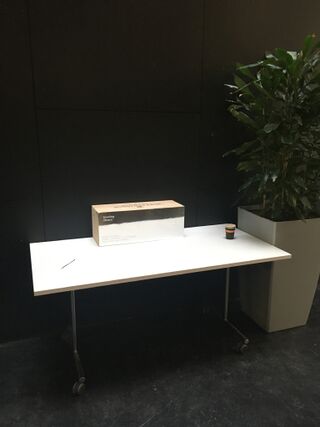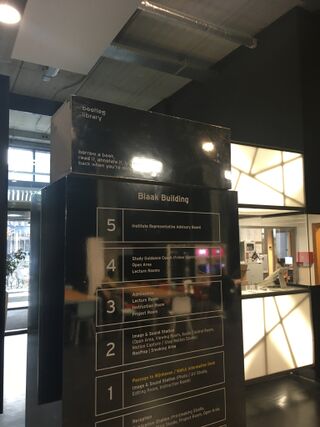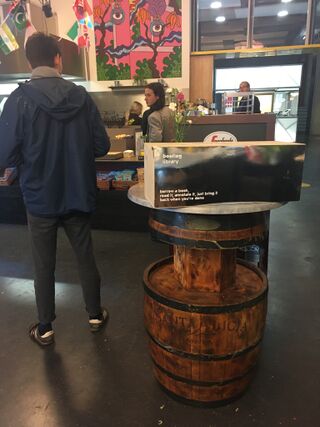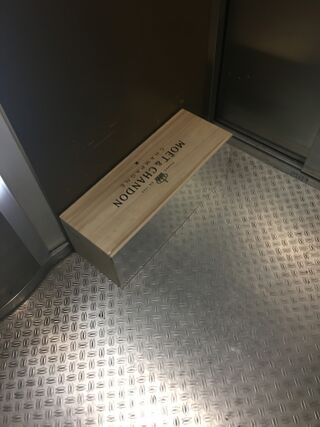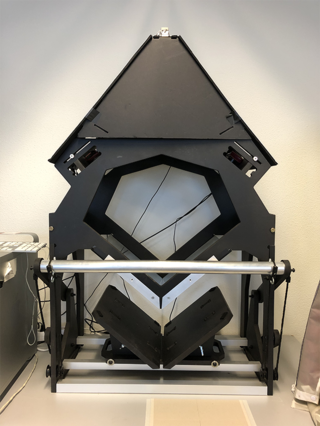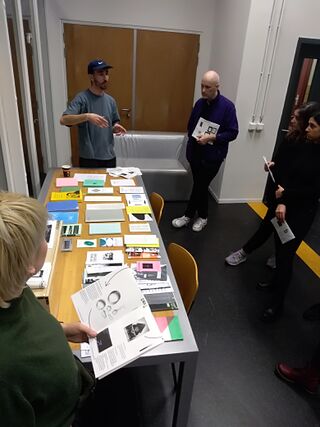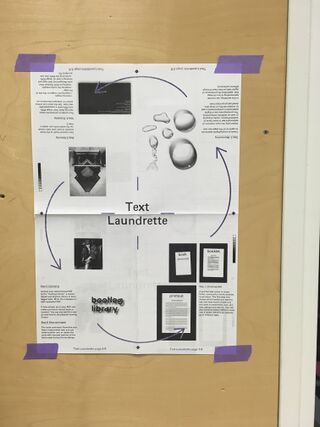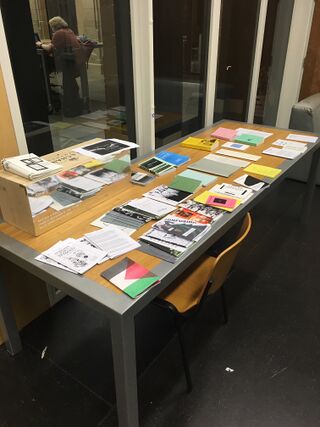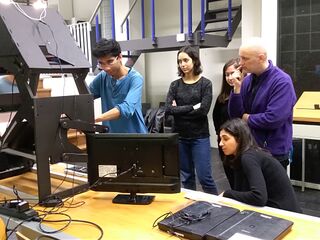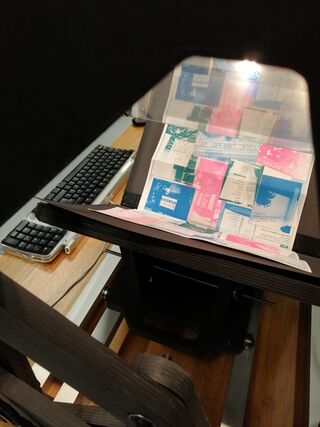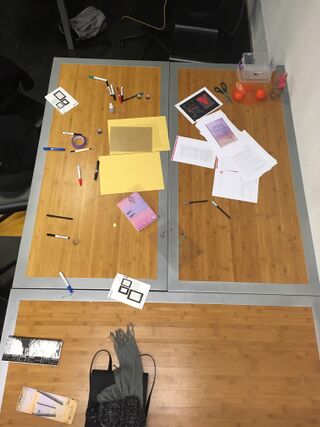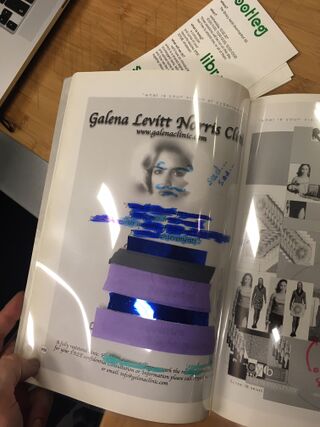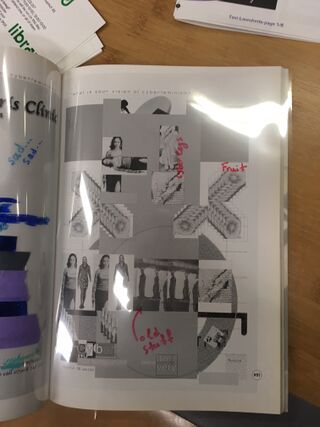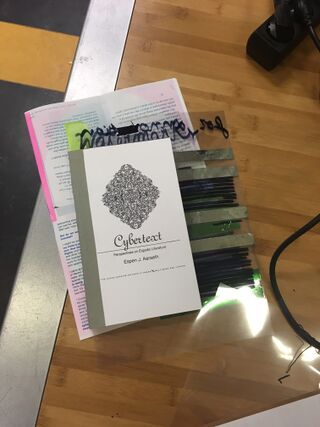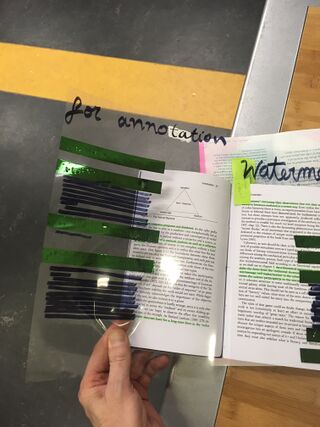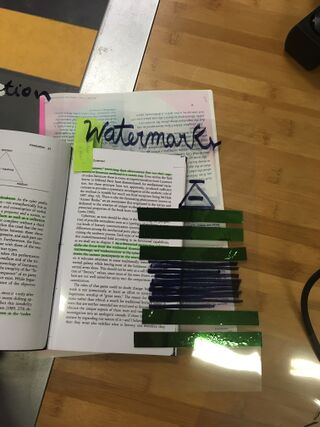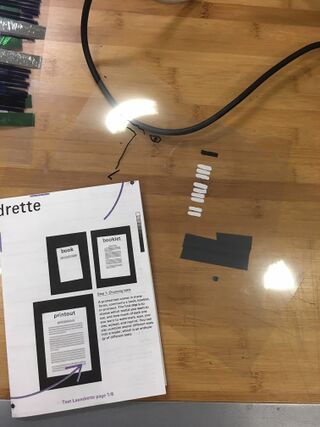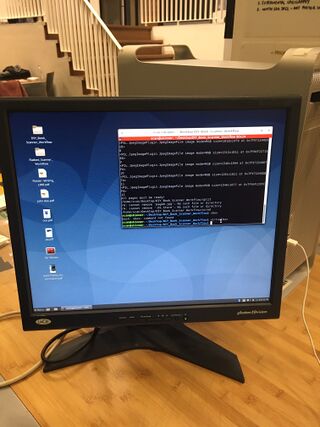Contents
02.12.19 The nomadic physical bootleg library[edit]
The physical bootleg library is a collection of books, mostly made at PZI by myself and other students, or donated by visitors to PZI. The books are kept in a repurposed champagne crate, usually stored on a shelf in the Lens-Based studio. The only condition for borrowing books is that they are returned at some point. The dimensions of the box introduce certain constraints on the size and quantity of books contained within. The box is portable, allowing it to be placed in many locations:
The portability of the box means that it could be an interesting container & receptacle for libraries that travel - I'm quite interested in the possibility of using the box to transport and store both printed and digital books, especially in temporary library situations (on hotspotted Raspberry Pi for example) that could be used in worksessions at various locations.
Text Laundrette[edit]
Text Laundrette is a workshop in which we use a home-made, DIY book scanner, and open-source software to scan, process, and add digital features to printed texts brought by the participants to the workshop. These are included in the “bootleg library”, a shadow library accessible over a local network. The workshop was organised by Simon Browne and Pedro Sá Couto, for the 2020 py.rate.chnic sessions and first held at WdKA in the Publication Station, February 2020.
Description[edit]
Text Laundrette is a print party workshop.
We will use a home-made, DIY book scanner, and open-source software to scan, process, and add digital features to printed texts brought by the participants to the workshop. Ultimately, we will include them in the "bootleg library", a shadow library accessible over a local network.
Shadow libraries operate outside of legal copyright frameworks, in response to decreased open access to knowledge. This workshop aims to extend our research on libraries, their sociability, and methods by which we can add provenance to texts included in public or private, legal or extra-legal collections.
At WdKA Publication Station[edit]
The workshop follows a workflow of the following steps:
- Choosing texts
- Watermarking
- Scanning
- Processing
- Uploading
- Rinse and repeat (return to step 1)
First workshop 03.02.20[edit]
The workshop ran over 2 hours with invited guests from the academy. It was an ambitious workflow, but we managed to run through several iterations of watermarking, scanning, processing and uploading. The realisation of how much work is involved in digitising and processing texts was certainly a take-home for participants. An interesting moment occurred when uploading - who was the author of the altered text?
Some photos here:
